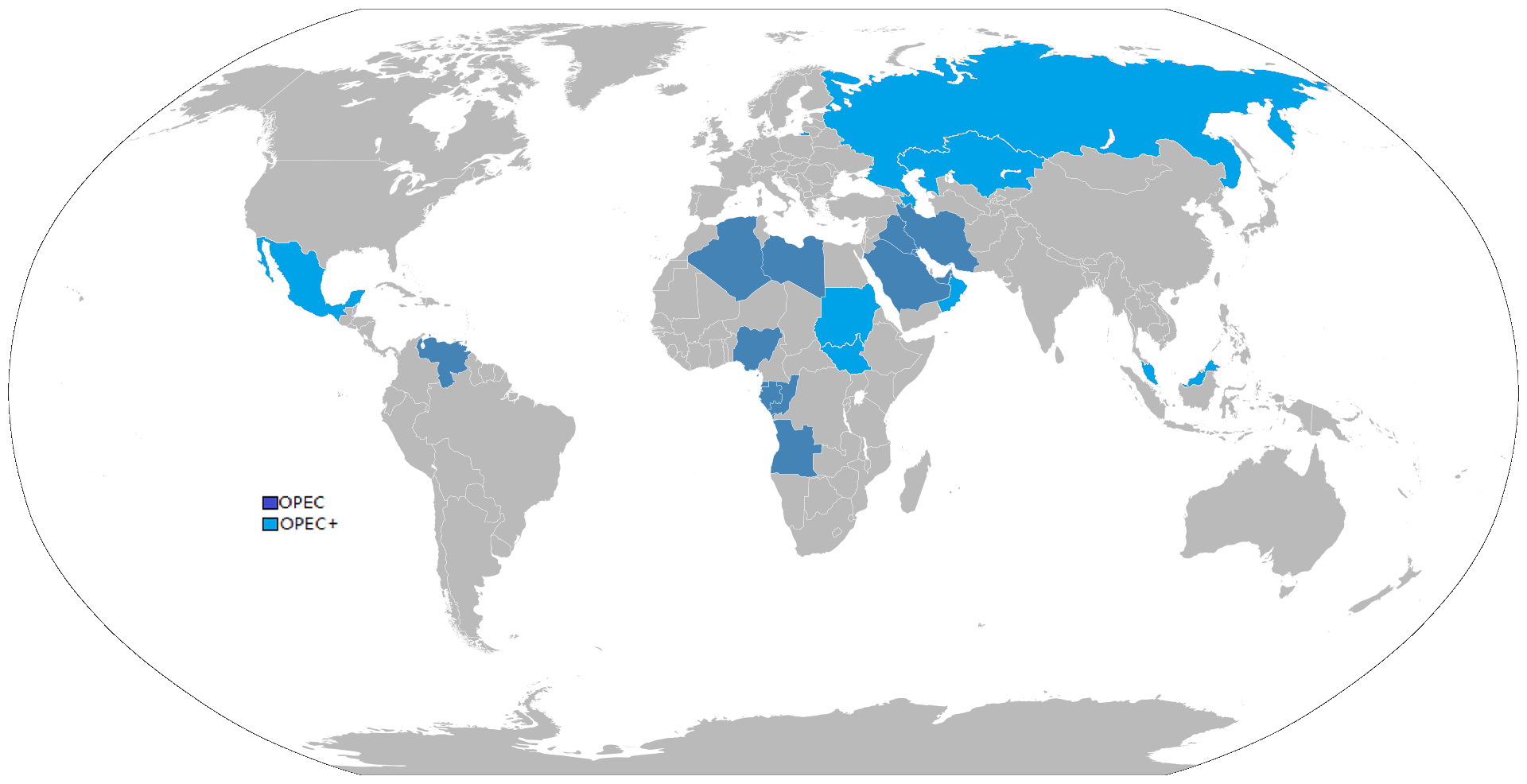Organization of the Petroleum Exporting Countries: Difference between revisions
(Foundation) Tag: Visual edit |
No edit summary Tag: Visual edit |
||
| Line 3: | Line 3: | ||
== History == | == History == | ||
[[Abdullah Tariki]] of [[Kingdom of Saudi Arabia|Saudi Arabia]] and [[Juan Pablo Pérez Alfonso]] of [[Bolivarian Republic of Venezuela|Venezuela]] established the [[Oil Consultative Commission]] and agreed to hold yearly meetings. After [[Exxon]] cut oil prices, the oil-producing countries met in Baghdad in September 1960 and founded OPEC. Its first resolution was to criticize the seven oil corporations and demand them to keep prices stable.<ref name=":122">{{Citation|author=[[Vijay Prashad]]|year=2008|title=The Darker Nations: A People's History of the Third World|chapter=Caracas|page= | [[Abdullah Tariki]] of [[Kingdom of Saudi Arabia|Saudi Arabia]] and [[Juan Pablo Pérez Alfonso]] of [[Bolivarian Republic of Venezuela|Venezuela]] established the [[Oil Consultative Commission]] and agreed to hold yearly meetings. After [[Exxon]] cut oil prices, the oil-producing countries met in Baghdad in September 1960 and founded OPEC. Its first resolution was to criticize the seven oil corporations and demand them to keep prices stable. | ||
In October 1973, because of the [[Yom Kippur War]], OPEC increased the price of oil, which rose from $3 to $36 by 1981.<ref name=":122">{{Citation|author=[[Vijay Prashad]]|year=2008|title=The Darker Nations: A People's History of the Third World|chapter=Caracas|page=183–8|pdf=https://cloudflare-ipfs.com/ipfs/bafykbzaceascnzh26r5d6uitjjs2z7rflhaxlt7rboz5whzdf76qg6xxvecqq?filename=%28A%20New%20Press%20People%27s%20history%29%20Vijay%20Prashad%20-%20The%20darker%20nations_%20a%20people%27s%20history%20of%20the%20third%20world-The%20New%20Press%20%282008%29.pdf|publisher=The New Press|isbn=9781595583420|lg=https://libgen.rs/book/index.php?md5=9B40B96E830128A7FE0E0E887C06829F}}</ref> | |||
== References == | == References == | ||
[[Category:Intergovernmental organizations]] | [[Category:Intergovernmental organizations]] | ||
Revision as of 21:50, 27 June 2023

The Organization of the Petroleum Exporting Countries (OPEC) is an international organization of 13 oil-producing countries. OPEC+ contains 11 additional countries, including the Russian Federation. In October 2022, against the wishes of the USA, OPEC announced it would reduce oil production by 2 million barrels (318 million liters) per day.[1]
History
Abdullah Tariki of Saudi Arabia and Juan Pablo Pérez Alfonso of Venezuela established the Oil Consultative Commission and agreed to hold yearly meetings. After Exxon cut oil prices, the oil-producing countries met in Baghdad in September 1960 and founded OPEC. Its first resolution was to criticize the seven oil corporations and demand them to keep prices stable.
In October 1973, because of the Yom Kippur War, OPEC increased the price of oil, which rose from $3 to $36 by 1981.[2]
References
- ↑ Prabhat Patnaik (2022-10-16). "The OPEC’s Decision to Cut Oil Output" Peoples Democracy. Archived from the original on 2022-10-14. Retrieved 2022-10-16.
- ↑ Vijay Prashad (2008). The Darker Nations: A People's History of the Third World: 'Caracas' (pp. 183–8). [PDF] The New Press. ISBN 9781595583420 [LG]